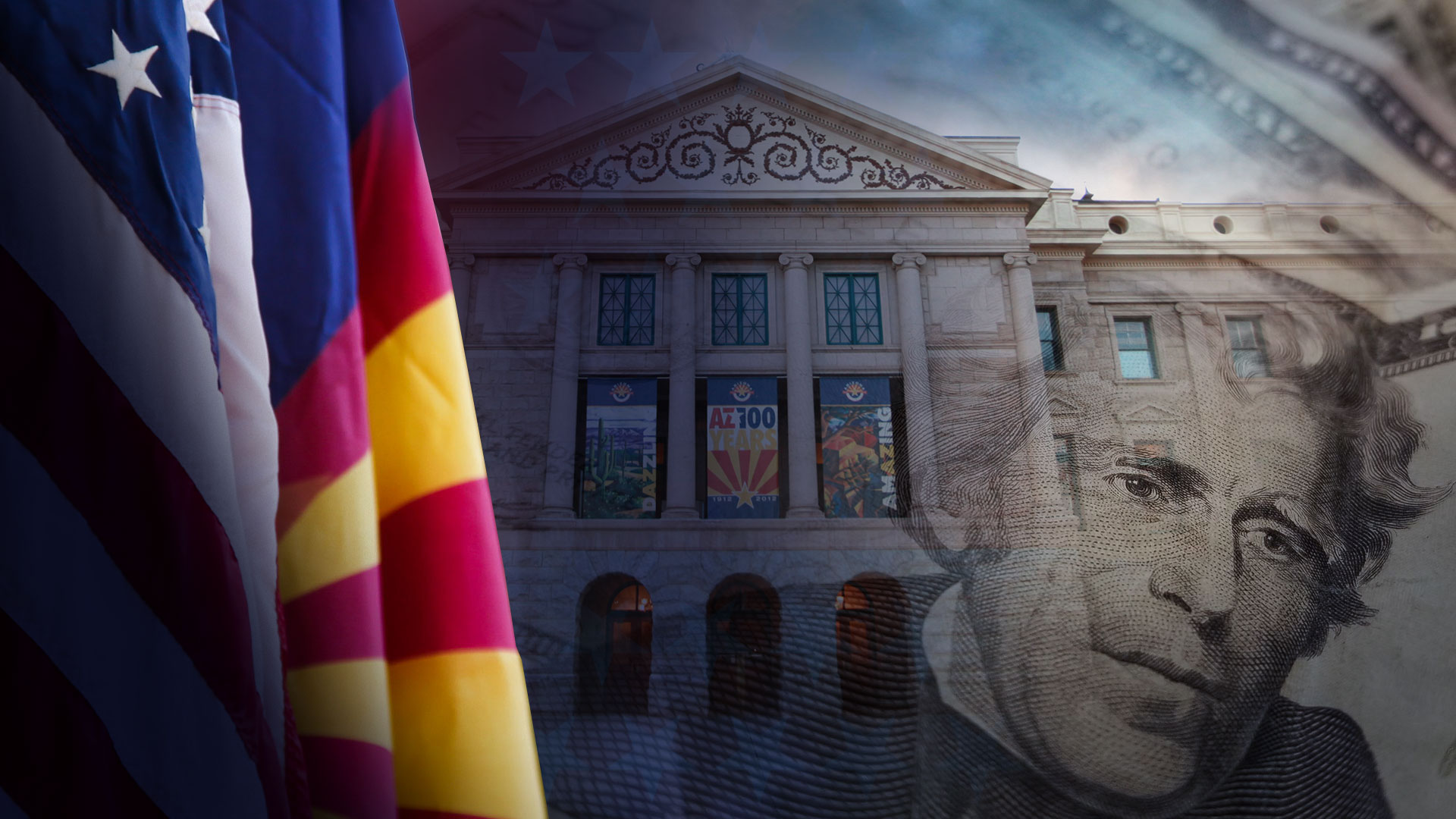 Better understanding the motivations of top-dollar donors.
Better understanding the motivations of top-dollar donors.
The Buzz for April 26, 2024

The cost of running for political office in Arizona continues to grow. The only congressional races where candidates have yet to amass millions of dollars between them are the state's safest congressional districts, and the race for an open U.S. Senate seat already has tens of millions donated to candidates.
And while the horserace of campaign donations used to be a strong indicator of things to come, it may be losing its predictive ability.
"Is money the end all be all? It's not," said Mike Noble, founder and CEO of Noble Predictive Insights. "It used to be that if someone had more money, it was like 90% of the time a person with more money would win. But that was before the technology developments like these different modes, or mediums of communication. I mean, it looks nothing like what it was 10 years ago."
But, Noble said that money allows for a candidate to push their message to voters, thus helping set a perception of the issues.
"The first rule in politics is that perception is reality when it comes to campaigning. Campaigns are all about showing of strength, momentum. Like when you see folks rolling out these different coalitions and things like that, they don't really have a really material impact. But what they do is show this momentum, because that's what running for office is basically, a short term marketing campaign. The only thing is we have a guaranteed end date."
In fact, both of the Republican candidates have raised less money than Kyrsten Sinema, the incumbent independent who dropped out of the race in early March. Between money raise before that date and what was left from prior campaigns, she had $17 million on hand.
"The vast majority, the funds on both sides of the aisle are coming frankly, from out of state like there's not a lot of money, frankly, here in the desert, unlike states like Virginia, for example."
Gallego's strongest state outside of Arizona was California, accounting for almost 20% of his funds raised to start the year. Lake also had California as her second-strongest state, though it accounted for about 10% of her total donations. Lamb raised about 5% of his money from Texas.
But, Noble said, just as important as raising money is knowing when to spend it.
"Let's say you and I were hypothetically going against each other in an election. I'm up 10 points in the polls, but you look at the campaign finance, and I've raised some money, but I've got no cash available. It's like I've got no gas in the tank, especially in the last 30 days of the election, when folks are most paying attention. If I go dark in those last 30 days, because I don't have the resources, I'm probably gonna end up losing that race."
Noble notes that the only race that outspends a competitive U.S. Senate race is the presidency. And with Arizona set to be a key swing state in the electoral college, the candidates and their campaign surrogates are likely to spend a notable amount of time in the state.
If they decide to head to the places where they tend to receive most of their in-state money, then Scottsdale will be busy with campaign events.
Outside of that area, Biden's next highest donating ZIP code is Tucson's 85718, while Trump fared well in Peoria's 85383.
Biden, Haley and Kennedy have all drawn much of their Arizona money from big-dollar donors. Biden has 53 Arizona donors who have contributed $6,000 or more, while Haley had 45 accounting and Kennedy had 18.
Trump had only one donor over $6,000, Blake Masters, who received Trump's endorsement in a failed 2022 run for U.S. Senate. He is currently running for a Congressional seat held by retiring Republican Debbie Lesko.
Trump's Arizona donations have largely skewed to more frequent, small-dollar donations–or perhaps the better term is sub-dollar donations. Of the nearly 62,000 Arizona donations to his campaign, almost 14,000 were for less than $1.
Biden has received fewer than 10,000 donations from within Arizona, with 10 for $1 or less. Kennedy has 2,700 Arizona donations with only one of $1 or less. And Haley's ended campaign received nearly 18,000 instate donations, with 550 for $1 or less.
Starting this election, that will not be the case for races within the state. Such groups, known by the tax code designation 501(c)(4), now must disclose original donors who give them more than $5,000 when they advertise or face a fine.
That new law was set for by Proposition 211, which was approved by voters in 2022 by a more than 2-to-1 margin.
"The sort of operative word is the original donor," said Terry Goddard, a former Arizona Attorney General who spearheaded the Outlaw Dark Money effort. "What we found a lot was people would literally daisy chain contributions. I give to you, you give to somebody else, they give to a third party, all with funny names like Citizens for Peanut Butter. And eventually, it gets spent for political advertising. What Prop 211 has done is it says, 'Look, you can do that, that's not illegal. But you got to tell us where the original source was.'"
Such disclosures will appear in part on visual advertisements and completely on the Arizona Secretary of State's website, Goddard said. He hopes the law will help end rumors about who is spending money to sway Arizonans, and replace them with facts.
"Well, there haven't been [any unexpected disclosures] yet because many times we had a pretty good suspicion as to what was happening. We just didn't have proof. Now we know who it is that is spending and we'll be able to evaluate the message in terms of the messenger, of who's paying for the ads to be placed."
Goddard said he hopes such disclosures grow beyond Arizona's borders. He said he has talked with Rhode Island U.S. Senator Sheldon Whitehouse. He also noted that the DISCLOSE Act, which has been introduced numerous times since 2010, made it through the U.S. House in 2019, but died in the Senate. It was introduced again in 2023.
"I find that citizens are overwhelmingly in favor. In fact, I couldn't get a single person when I was passing petitions to say, 'I'd rather not know who's paying for the ads that I'm watching.' The general population is over here, and many of the elected representatives are completely on the other side. The only thing I draw from that is that there are certain politicians who are either beholden to dark money, would like to be in the future, or are afraid to death of the dark money forces are going to primary them and knock them out of their office."




By submitting your comments, you hereby give AZPM the right to post your comments and potentially use them in any other form of media operated by this institution.